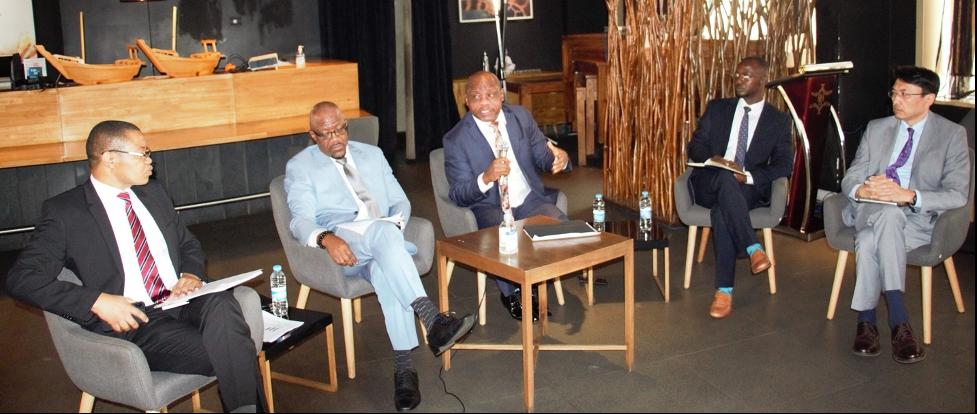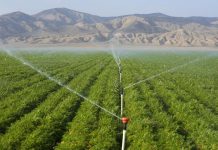Africa-Press – Liberia. The World Bank Country Manager for Liberia, Dr. Kwhima Nthara has hailed the Liberian Government for making tough choices that have resulted in a boost to the economy. Dr. Nthara made the commendation following the launch of the Second Edition of the annual Liberia Economic Update, “Finding Fiscal Space”.
According to the report, economic growth is expected to recover to 3.6 percent in 2021, before rising gradually to an average of 5.2 percent over 2022–2025. In the near term, growth will be driven by the expected recovery in the mining sector underpinned by the recent uptick in commodity prices.
Having reached a peak of 31.3% in 2019, inflation declined significantly in 2020 and 2021, and is now down to single digit, largely because of strong macroeconomic policies, the report noted.
The drop in world oil prices in 2020 allowed some easing in Liberian fuel prices, a frequent driver of inflationary pressures, although their decline was moderated by the introduction of an excise tax early in the year. But it was macroeconomic policy that was at the center of the action, with tighter monetary and fiscal policies, and the ensuing lower aggregate demand pressures, helping to ease the self-reinforcing cycle of depreciation-inflation observed in late 2018 through 2019.
“The Government must be commended for making tough policy choices that have resulted in this positive turnaround in macroeconomic fundamentals, especially under a challenging COVID-19 environment,” said Dr. Nthara.
“The focus now should be on complementing the improved macroeconomic environment with critical structural and governance reforms that will help boost domestic and foreign private investment to create more jobs.”
Since its ascendancy to the helm of power in 2018, the Weah-led government has instituted several economic reforms aimed are stabilizing the fragile economy it inherited largely to due to the slump in major commodity prices, Ebola and the exit of the United Nations Mission in Liberia.
Some of these measures include the drastic cut of top public officials including cabinet ministers, directors, legislators and judges’ pay, and the salary harmonization program which dissolved the special allowance package that used to be given to civil servants at the discretion of public officials including minister and directors. The Civil Service Agency has been given the opportunity to band all positions appropriately.
“Create Enough Fiscal Space’
After successfully stabilizing the macroeconomy, the government needs to create enough fiscal space to finance the country’s massive investment needs in physical infrastructure (power/energy, roads, rails, ports, and airports).
In addition, Liberia needs to invest in its people and institutions, and create an educated, skilled, and healthy labor force, in both the public or private sectors, and protect its economy and vulnerable population against repeated exogenous shocks, the Liberia Economic Update emphasized.
The report comes in the wake of the submission of the draft National Budget for Fiscal Year 2022 in the tune of US$785.5 million, the largest in post war Liberia to the Legislature for passage.
In a communication to the Legislature, President Weah said, with economic growth in Sub-Saharan Africa projected at 3.7 and 3.8 for 2021 and 2022, respectively on account of improvement in global trade and improved commodity prices, the Liberia economic resurged in 2021 following two consecutive years of slump in economic activities.
The President stated the resurgence is driven mainly through business optimism, rise in the global prices of rubber and iron ore, and increased capital spending. Growth in 2021 is projected at 3.2 Percent up from a slump of -3.0. This momentum of recovery is set to continue in FY 2020, with growth projected to be at 4.1 percent and over the medium term with an average annual growth rate of over 4.0 percent.
He said out of the total budget of US$785,587,340, the recurrent component of expenditure is US$643,207,340, while total cost of Public Sector Investment Project (PSIP) is projected at US$142,380,000.
However, the new economic report outlined the government needs to reduce the very high level of recurrent spending and strengthen domestic revenue mobilization to generate savings for public investment financing.
Between 2012 and 2020, government’s operating expenses exceeded the domestic revenue it collected by 4 percent of GDP. This means that the external resources mobilized in the period financed a significant part of the government’s operating expenditure instead of financing public investment in infrastructure.
“The recent efforts to reduce duty waivers and the successful implementation of the pay and payroll reform are steps in the right direction and need to be complemented by actions to improve the efficiency in the consumption of goods and services by the Government,” said Mamadou Ndione, Senior Country Economist and main author of the report.
Meanwhile, a panel discussion featuring the Minister of Finance and Development Planning, Samuel D. Teah, the Central Bank Governor J. Alloycious Tarlue with Dr. Nthara serving as the moderator.
Minister Tweah said while significant progress has been made through the help of the government’s partners including the IMF and the World Bank, much more needs to be done.
“Yesterday, we submitted the biggest budget in post war Liberia, we want to say thank you for your support,” he said.
“We need the support to push all of the reforms: the project in education, health, water and sanitation, and the Cheesemanburg Landfill,” he added.
Governor Tarlue said the Central Bank has taken several measures to address the issue of inflation, which was exacerbated by the shortage of money on the Liberian market. However, with the gradual replacement of the legacy and the enhanced banknotes with a new family of banknotes over the next four years, inflation is expected to further decrease.
For More News And Analysis About Liberia Follow Africa-Press






